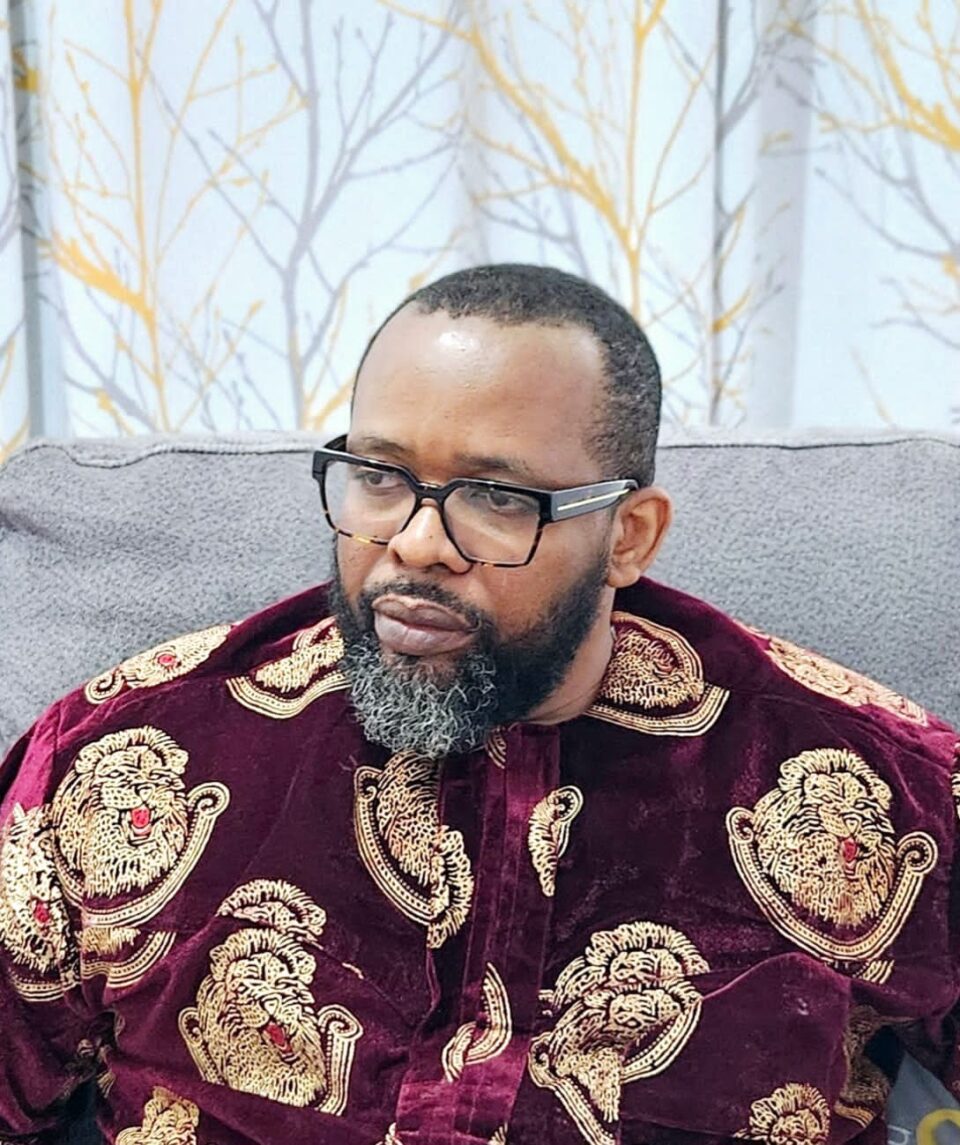The South-East region welcomes the proposed bill to amend Sections 262 and 277 of the Nigerian Constitution, which aims to expand the scope of Sharia law in Northern Nigeria. We, the Igbo-Biafra Nationalists and the Indigenous People of Igbo Nation for Self-Determination, recognise that this bill is not a mere amendment or a minor legislative tweak; but a decisive step toward establishing de facto secession and self-governance for Northern Nigeria. For the South-East, this bill only confirms what we have already witnessed: that Nigeria is a fractured state, a state where unfriendly ethnic nationalities are coerced to live together in a toxic enterprise where each region has its own path and separate interests. Yes, you heard right, this proposed amendment cements a reality that the Igbo-Biafra Nationalists and the Indigenous People of Igbo Nation for Self-Determination have long argued—Nigeria is an inherently divided entity and attempts to force it into an artificial unity have only perpetuated cycles of oppression, discrimination, and marginalisation for regions like the South-East.
Let us be clear: this bill, under the guise of expanding legal provisions, is actually a bill to cement the outright and substantive secession of Northern Nigeria. The North’s pursuit of autonomy through Sharia law stands in stark contrast to the unified, secular model that was meant to bind Nigeria together as a single entity. It is not only a departure from the principles of secularism but also a direct challenge to the very idea of a united Nigerian state which has been to the detriment and strangulation of the South-East region anyway. With this bill, the North has clearly demonstrated its desire for autonomous governance based on religious principles, effectively positioning itself as a state within a state to the detriment of other regions but especially the South-East.
Given these developments, we, the Igbo-Biafra Nationalists and the Indigenous People of Igbo Nation for Self-Determination, see no reason to wait for this bill to pass in its entirety before taking action. We urge all political representatives from the South-East region in particular, and those from the southern and north-central regions more broadly, to join and support a bill for the dissolution of Nigeria. This is not a call for disorder or upheaval; it is a demand for justice, equality, and the right of each region to pursue self-determination on its own terms.
The bill to amend Sections 262 and 277 represents an unmistakable move toward a separate legal framework for Northern Nigeria as an entitlement and as a region borne to rule the rest of us. By expanding the jurisdiction of Sharia law, this bill effectively grants the North in addition a substantive autonomy that allows it to operate at will outside the Nigerian secular constitution to the enslavement of other regions and especially the South-East. The North’s insistence on enforcing Sharia law on an expanded scale is a clear rejection of the foundational principles of Nigerian unity whenever it wills and suits it—-which signals a formal recognition that Northern Nigeria is on a path to de facto independence.
This bill, if passed, would further establish and consolidate a dual legal system within Nigeria already championed by former Governor Ahmed Sani Yerima in 1999 and came into effect on January 27, 2000, from whence the Northern region has since been operating under that religious legal code that is fundamentally at odds with the secular laws that govern the rest of the country. Such a legal framework goes beyond mere accommodation of religious values; it is an assertion of regional autonomy that positions Northern Nigeria as a distinct legal and governance entity within the country. This is, in every sense, a substantive secession, and we recognise it as such.
For the South-East, this development underscores a fundamental inequity and injustice in the Nigerian state. While Northern Nigeria pursues self-governance with the tacit support of the federal government, the South-East’s calls for self-determination have been met with heavy-handed repression, accusations of treason, and systematic marginalisation. The North’s pursuit of Sharia law is, in essence, an assertion of self-determination—one that we believe the South-East, as well as other southern and north-central regions, have an equal right to pursue.
Dissolution remains an Equitable Response to Northern Nigeria’s Secession
Given that Northern Nigeria is already exercising a degree of self-governance through its unique Sharia legal system, the South-East region’s demand for the dissolution of Nigeria is not only justified but necessary. The South-East, along with other regions, has suffered from political exclusion, economic deprivation, and cultural marginalisation within a Nigerian state that has repeatedly shown favouritism toward certain regions while undermining others.
The bill to expand Sharia law in the North effectively erases any remaining illusions of Nigerian unity. If one region is allowed to establish a separate legal system, disregarding the principles of secularism enshrined in the Constitution, then the South-East and other regions must be granted the same right to self-determination and autonomy. This double standard is not only a violation of the principles of justice and equality but also a clear signal that Nigeria, as currently constituted, is not a viable union for all its constituent regions.
Our call for dissolution is not a reactionary stance but a necessary and principled demand for justice. If Nigeria cannot offer equal rights and protections to all its regions under a single, secular legal framework, then it is time for each region to pursue a future that respects its unique cultural, social, and legal values. We urge political representatives from the South-East region, as well as those from the southern and north-central regions, to join forces in sponsoring a bill that seeks to dissolve Nigeria and grant each region the freedom to govern itself.
The South-East’s Case for Self-Determination is a Response to Institutionalised Inequality
The South-East’s call for self-determination is grounded in decades of exclusion, injustice, and discrimination. While Northern Nigeria is allowed to assert its religious identity through Sharia law, the South-East has been repeatedly denied similar freedoms, enduring systemic violence and suppression for advocating its rights. This unequal treatment is a clear indication that Nigeria’s unity is nothing more than a fragile facade, maintained through selective enforcement and biased governance.
If Northern Nigeria can assert its autonomy through Sharia law, the South-East has every right to seek its own path to self-governance, free from the constraints of a Nigerian state that has consistently marginalised its people. The proposed amendments to Sections 262 and 277 only solidify our conviction that the current Nigerian state is incapable of providing a just and equitable framework for all its citizens. This bill is a clear and deliberate step toward regional autonomy for the North, and it should be met with an equally decisive call for autonomy from the South-East and other regions.
The Case for Dissolution: Securing Autonomy and Ending Oppression
For too long, the South-East has been forced to operate within a system that does not respect its people’s rights or interests. The expansion of Sharia law is not just a legal divergence; it is an existential threat to the principles of secular governance and unity that Nigeria purportedly stands for. The passage of this amendment would formalise Northern Nigeria’s secession in all but name, making it abundantly clear that the regions within Nigeria have divergent paths and incompatible visions for the future.
The South-East’s pursuit of a bill for dissolution is an assertion of its right to self-determination and a demand for freedom from a state that has systematically marginalised its people. The Igbo-Biafra Nationalists and the Indigenous People of Igbo Nation for Self-Determination assert that the South-East deserves the opportunity to govern itself independently, to establish a political structure that protects its people’s interests and respects their cultural heritage. If the North is allowed to pursue a legal system that aligns with its religious beliefs, then the South-East must be equally entitled to pursue a governance system that reflects its own secular, democratic values.
Supporting the Bill for Dissolution: A Path to Justice and Equality
The dissolution of Nigeria is not a radical or chaotic proposition; it is a pathway to genuine autonomy and equality for all regions within the Nigerian state. The Igbo people of the South-East, along with other regions, have long sought a governance structure that respects their cultural values, provides equitable representation, and safeguards their rights. By dissolving Nigeria, each region would be free to establish its own governance structure, rooted in its unique cultural, social, and legal values, without interference from a federal system that has failed to uphold the principles of unity and fairness.
Supporting a bill for the dissolution of Nigeria is a demand for justice, autonomy, and respect. It recognises that the Nigerian state, as it stands, is unable to meet the needs of all its regions. The South-East, with its strong cultural identity, distinct values, and commitment to secular governance, deserves the right to pursue a future that aligns with its aspirations, free from the constraints of a selectively unified Nigeria.
Embracing a New Path Forward for the South-East and Other Regions
Finally, the proposed amendments to Sections 262 and 277 are not just legal adjustments; they are a pivotal moment for Nigeria’s future. This bill, by expanding Sharia law, cements Northern Nigeria’s de facto secession and establishes a precedent for regional autonomy that cannot be ignored. In response, we, the Igbo-Biafra Nationalists and the Indigenous People of Igbo Nation for Self-Determination, urge political representatives from the South-East, the southern regions, and the north-central regions to stand together in supporting a bill for the dissolution of Nigeria. This is because the Igbo-Biafra Nationalists and the Indigenous People of Igbo Nation for Self-Determination regard this bill as a turning point. If the North insists on pursuing this path of legal and cultural separatism, then the South-East must also take decisive steps to secure its own future, free from the dictates of a state that clearly no longer operates as a unified entity.
This call is a demand for equality, justice, and self-determination for all regions within Nigeria. If Nigeria cannot guarantee equal rights and protections for all, then the time has come for each region to determine its own future. The South-East, with its rich history and commitment to secular values, deserves the right to establish a governance system that respects its identity and secures its rights. Supporting the dissolution of Nigeria is a step toward a future of autonomy, security, and respect for all regions, allowing each to achieve self-determination on its own terms.
A United Front or a Solo Stand: The Path for the South-East
We urge the South-East’s political representatives to take the lead in sponsoring a bill for the dissolution of Nigeria. The call for dissolution is not an act of rebellion; it is a response to the North’s own pursuit of autonomy. If the South-West and the North Central regions recognise the importance of this initiative and the opportunity it represents for their own people, then they are encouraged to join in supporting this bill. However, should these regions hesitate, it is crucial for the South-East to proceed independently, as it has long been the region most acutely affected by the structural injustices and inequities that have defined Nigeria’s political arrangement.
The Igbo people and the South-East region have borne the brunt of Nigeria’s discriminatory policies, facing underrepresentation in government, economic deprivation, and targeted violence. The North’s push for Sharia expansion is only the latest in a long line of policies that demonstrate the incompatibility of Nigeria’s diverse regions within a single, unified state. If the South-West and North Central hesitate, then it is advisable for the South-East to act alone, leading the way in this call for dissolution, thereby securing a future that aligns with the region’s cultural, social, and economic aspirations.
Uche Mefor is the Convenor of the Igbo-Biafra Nationalists and the Indigenous People of Igbo Nation for Self-Determination



